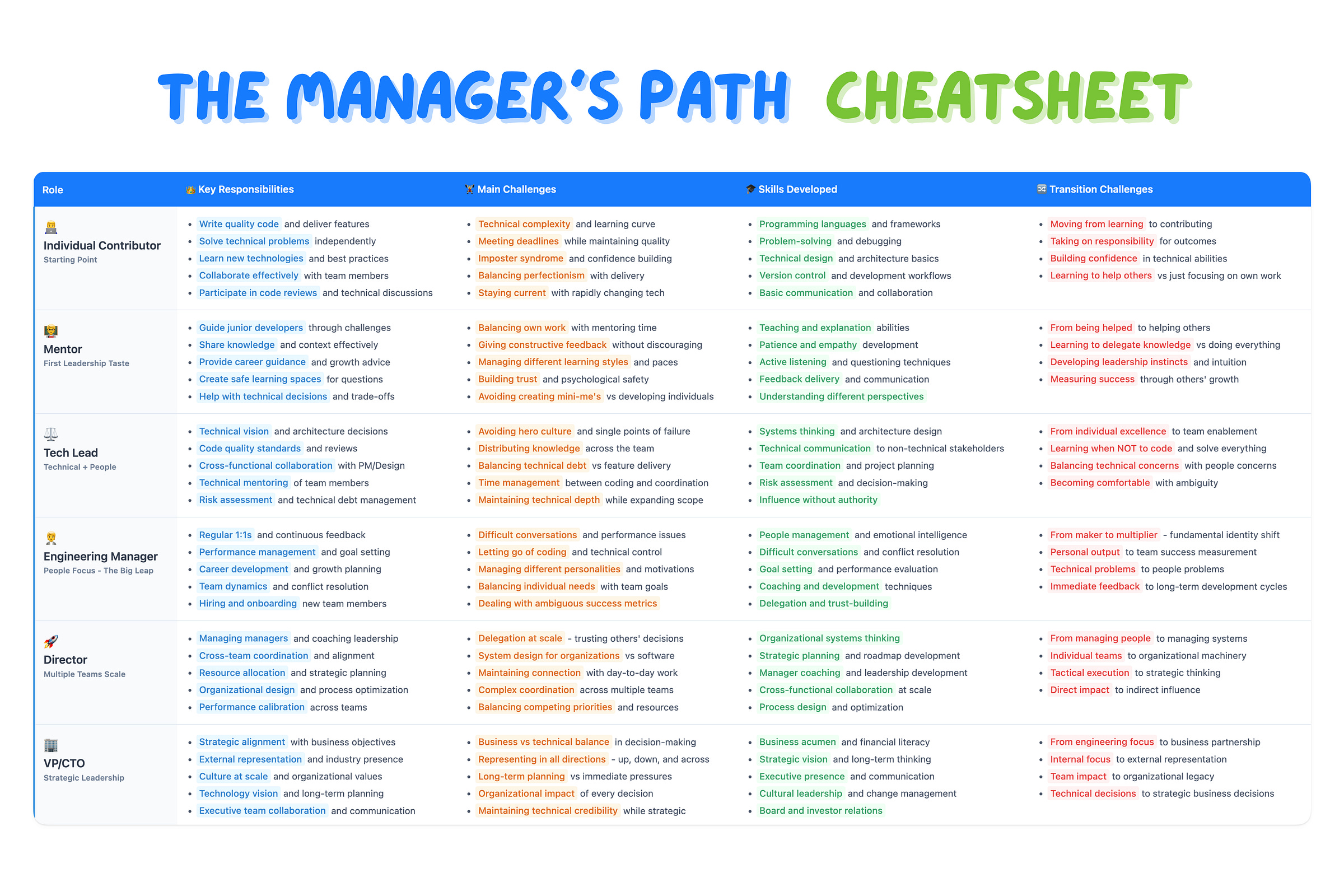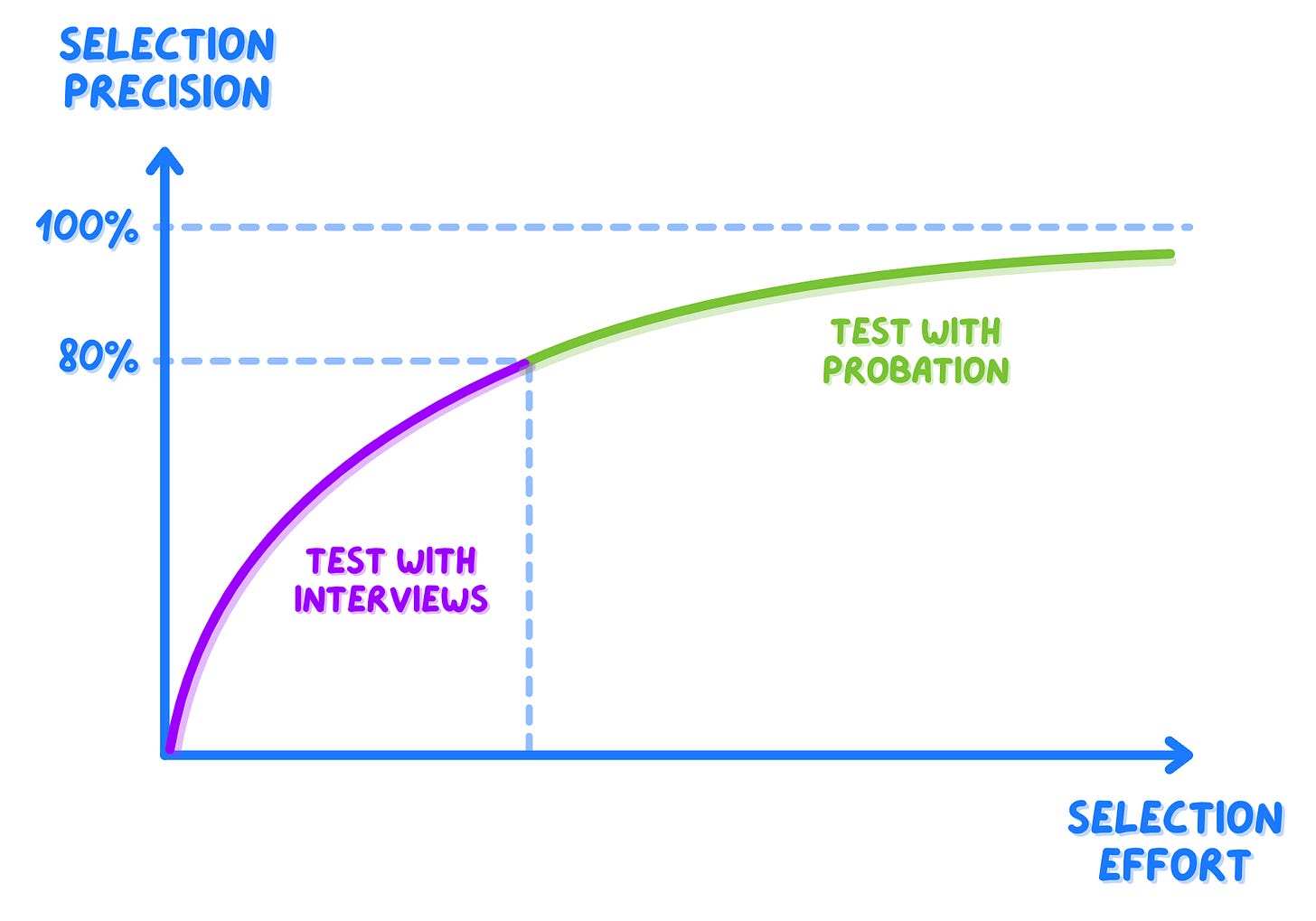Hey, Luca here, welcome to a weekly edition of the💡 Monday Ideas 💡 from Refactoring! To access all our articles, library, and community, subscribe to the full version:
Resources: 🏛️ Library • 💬 Community • 🎙️ Podcast • ❓ About
1) 🪜 My pep talk for your career
Last week I recorded this video 👇 that goes through some of the best advice I could think of related to engineering careers:
It takes from many ideas I have written about recently, including:
🎯 Skills vs impact — figuring out if you are on the right track
🎨 Generalists vs specialists — getting broad vs getting deep
🔀 Changing Jobs — should you stay or should you go
🤖 How to use AI for good — to super charge your career
Let me know if you like it! And if you do, please consider liking the video and subscribing to the Youtube channel!
Also, if you prefer reading to watching, you will find an extended version of many of those ideas in this article 👇
2) 🗳️ Answer our survey about AI and win $150!
As you may have seen, we are working on a big industry report about how engineers and teams use AI at work, and how they feel about it.
We need your help to figure this out! 👇
Your answers will shape our findings and the best insights will be quoted in the final report.
We are also giving away 20 paid memberships for free ($150 each!) 🎁 to people who answer the survey! We will draw the winners next month as soon as the survey closes.
3) 🔨 The Manager’s Path cheatsheet
Recently we reviewed Camille Fournier’s masterpiece The Manager’s Path for the community book club.
The book covers how your duties change as you go through your career in tech — especially as you progress on the management track.
For the review we created a full cheatsheet that you can find below 👇 and also here in full size.
We also identified five key themes that are repeated across the book, which make for the most important takeaways:
🧑🏫 Management is a distinct discipline — it's about getting things done through others, not senior engineering with people duties. Success requires shifting from personal output to enabling team outcomes.
🔑 You own your team's everything — not just results, but morale, culture, and engagement. Missed deadlines, disengaged people, and team conflicts are your responsibility to address.
💪 Influence beats formal authority — true leadership comes from credibility and trust, not your title. Building rapport and demonstrating competence works better than asserting power.
🦋 Transitions are the hardest part — moving between roles is harder than the roles themselves. Each leap requires unlearning previous success patterns and adjusting your identity.
🪴 Culture is your long-term multiplier — focus on psychological safety, direct feedback, diversity, and mentoring pipelines. These foundations enable all other management success.
You can find our full summary and review below 👇
4) 📞 Speed vs quality in interviews
When designing your interview process, the obvious tradeoff is between speed and quality, which resembles the one between precision and recall in machine learning.
To get higher precision (== minimize false positives) you need more thorough, and thus slower, interviews, but these will win you less candidates (== lower recall). Conversely, going faster wins more candidates, at the expense of some bad hires. Thorough interviews also require more time and work from your team, so all in all this is a tough tradeoff.
Where should you settle? YMMV, but for regular software engineers, my personal target is 2 weeks from screening to offer.
This is apparently way below the average, which is 24 days for a software engineer in the US 👇
In the internet and tech industry in the US, the average length of the interview process is approximately 24 days, while the recruitment process for a software engineer in the US usually spans about 35 days.
So, if it takes more than two weeks, you can diagnose the process. Where is the time going? In my experience, here are the usual suspects:
Is it too many interviews? → Make sure different interviews actually test for different things, and are not there only for consensus — e.g. 3 interviews is a good number.
Is it latency because people have other things to do? → Make sure hiring is top priority, as it should be, and people’s time is allocated accordingly.
Are you waiting for multiple candidates to get to the final stage? → Rookie mistake! You should make an offer as soon as a strong candidate emerges.
Finally, some people just don’t feel comfortable at hiring fast. If that’s the case, it’s probably because you feel that false positives pose too much of a risk. Now, bad hiring sucks for everybody, so that’s a fair concern — but it shouldn’t be overly so.
The best way to de-risk bad hires is to make probation do its job. There’s some personal preference in this, but my style of hiring is to keep interviews lean and jump soon into doing real (paid) work together.
That’s because I have found interviews to get into diminishing-returns-land quite fast, so when you are—say—80% sure about a candidate, closing the final 20% costs you just as much as the rest of the process — so better to start real work and see how it goes.
The catch is that for this to work your onboarding needs to be snappy, so that during the initial months you can truly evaluate where the collab is going. But fast onboarding, in turn, is good signal about the health of your dev team, so this is a nice flywheel.
That said, what should you use interviews for?
We wrote a full guide (in three parts!) about how to interview engineers in 2025, which you can find below 👇
And that’s it for today! If you are finding this newsletter valuable, consider doing any of these:
1) 🔒 Subscribe to the full version — if you aren’t already, consider becoming a paid subscriber. 1700+ engineers and managers have joined already! Learn more about the benefits of the paid plan here.
2) 📣 Advertise with us — we are always looking for great products that we can recommend to our readers. If you are interested in reaching an audience of tech executives, decision-makers, and engineers, you may want to advertise with us 👇
If you have any comments or feedback, just respond to this email!
I wish you a great week! ☀️
Luca





